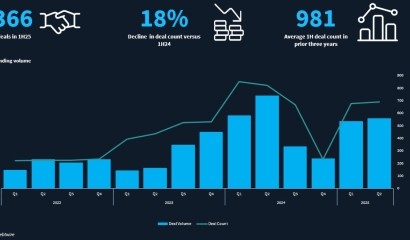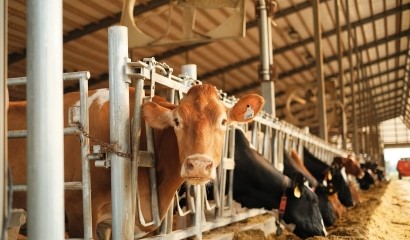CASE PROFILE: Discount retailer Big Lots looks to sell assets in bankruptcy with Nexus Capital stalking horse bid, USD 707.5m DIP loan
Big Lots filed a Chapter 11 petition today (9 September) in the US Bankruptcy Court for the District of Delaware, alongside a request to establish procedures for a sale effort backed by Nexus’ USD 760m stalking horse bid. The retailer reported total assets of USD 3.18bn and total debts of USD 3.1bn as of May. Big Lots’ total funded secured debt is USD 556m.
Big Lots’ Chapter 11 filing puts it among a growing list of retailers that have sought shelter in bankruptcy court this year, according to Debtwire’s Restructuring Database. With USD 556m in funded debt, Big Lots is the third largest of those major Chapter 11 cases, following Express Inc, which had USD 1.2bn in debt when it entered bankruptcy, and JOANN Inc, which had USD 1.06bn in debt.
Debtwire Dockets: Big Lots Inc.
The company
Based in Columbus, Ohio, Big Lots bills itself as a one-stop discount home goods retailer, selling products like furniture, décor items, kitchenware, groceries and pet supplies, according to a first day declaration from Chief Financial Officer Jonathan Ramsden. The company has a brick-and-mortar footprint of 1,300 stores across 48 states in the US, as well as an online e-commerce business segment, and counts 27,700 people as its employees.
The business traces its roots to 1967, when founder Sol Shenk began the company under a prior name, Consolidated International. In the following decades, said Ramsden, that company acquired a slew of discount close-out stores that operated under different brand names until 2001, when they all went under the umbrella of the Big Lots brand. The company is the fourth largest home goods retailer, and generated USD 4.7bn in revenue in 2023, according to the CFO’s declaration.
During the mid-2010s, Big Lots attempted to reposition its strategy and began to prioritize national brands and everyday items while dropping its emphasis on closeout and “extreme bargain” sales. That effort did not ultimately pan out great for the business, said Ramsden.
“This change in the Company’s commercial priorities resulted in higher average product prices, diminished customer traffic and stagnating sale volume,” the CFO said. “While the Company’s furniture segment delivered steady growth throughout this period, the Company’s shift away from its longtime commitment to sourcing discounted products contributed to the Company losing significant market share in its historically strong bargain merchandise vertical.”
The company then sought to refocus around its “core mission” as a discount retailer starting in 2018 and 2019 under a new leadership team. As that strategy began to take hold, however, the COVID-19 pandemic gripped the US and took over much of the company’s attention, said Ramsden. Soon after the pandemic began, Big Lots raised wages and was able to capitalize on an increase in demand for furniture and home goods as consumers spent more time investing in their living spaces.
The pandemic’s aftermath has brought on macroeconomic challenges to Big Lots’ business, amid inflation and high interest rates that impacted home investments among consumers, prompting the company to pivot its operations with the hope of remaining “the preeminent value-focused retailer,” said Ramsden.
The debt
Big Lots comes into the Chapter 11 process with USD 556.1m in funded debt. Of that total, USD 433.6m falls under a prepetition asset-based (ABL) facility that originally had up to USD 900m available, while USD 122.5m falls under a prepetition first-in-last-out term loan facility that originally had USD 200m available.
The company also reports unsecured obligations, with Ashley Furniture holding the single largest unsecured claim at USD 12.28m.
The descent
As factors contributing to the Chapter 11 filing, Ramsden said Big Lots has faced the macroeconomic headwinds such as inflation, interest rate hikes, heightened competition and supply disruptions that have impacted so many others in the retail sector.
Making matters worse, Big Lots’ largest supplier and the primary vendor for a Big Lots’ Broyhill furniture brand, United Furniture Industries (UFI), shuttered unexpectedly in November 2022. UFI supplied approximately 6% of all merchandise that Big Lots purchased in 2022, sending the retailer on the hunt for alternative vendors to supply the “foregone products,” said Ramsden.
“Disruptions such as these only compounded the difficulty of operating in an inflationary macroeconomic environment,” the CFO said. “The prevailing economic trends were disproportionately challenging to Big Lots, as its core customers curbed their discretionary spending on the high-margin home and seasonal product categories that significantly contribute to the Company’s bottom line.”
As the company’s business struggled, it launched a series of strategic initiatives aimed at positioning Big Lots to “own the bargain and extreme bargain” retail space, reduce costs, improve operational results and other goals. Ramsden said that those efforts, while they fell short of fully addressing Big Lots’ liquidity needs, made the company more attractive to potential investors and buyers. Big Lots also entered a sale-leaseback transaction in July 2023 with respect to a distribution center in California and 23 store locations that the company previously owned. That deal generated USD 305.7m in proceeds that Big Lots used to pay down some of its existing obligations, including a portion of its ABL debt.
As it sought a longer-term solution, Big Lots tapped advisors including Guggenheim Securities as investment banker, Davis Polk & Wardwell as legal counsel and A&G Real Estate Partners to advise on real estate strategy, as Debtwire previously reported. By the end of August, the company had launched a pre-bankruptcy marketing process to find a potential stalking horse bidder or plan sponsor in an anticipated Chapter 11 case.
The DIP and Chapter 11 case
Now under Chapter 11 protection, Big Lots has funding support from existing lenders who have agreed to provide USD 707.5m in total DIP financing—USD 157.5m in term loan financing with an affiliate of Gordon Brothers as agent and USD 550m in ABL financing with PNC Bank as agent. Of the total term loan portion of the DIP, USD 35m would come as new money, while the remainder of both the term loan and ABL DIP facilities would serve to refinance and roll-up Big Lots’ prepetition secured debt.
The company has laid out a goal of pursuing a marketing and sale process with a USD 760m offer—USD 2.5m in cash plus the payoff of all DIP and prepetition debt and the assumption of other liabilities—from stalking horse bidder Nexus to set a baseline. Alongside its other early filings in the Chapter 11 case, Big Lots proposed bidding procedures that would look to establish a 15 October bid deadline, 18 October auction date and a 4 November sale hearing.
The advisors




















